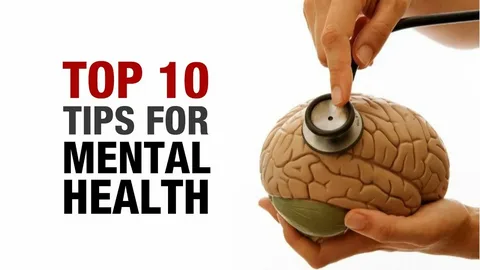In today’s fast-paced world, the importance of mental health cannot be overstated. Yet, despite growing awareness, there still exists a significant amount of stigma and misinformation surrounding this crucial aspect of our well-being. In this comprehensive article, we will delve into the intricate realm of mental health, dismantling misconceptions, and shedding light on the often misunderstood aspects of the human mind.
Introduction
Mental health is a vital component of our overall well-being. It affects how we think, feel, and act, and it plays a crucial role in our ability to handle stress, relate to others, and make choices. Unfortunately, despite its significance, mental health is often shrouded in myths and misconceptions. In this article, we will embark on a journey to understand mental health better, debunk stereotypes, and dismantle the stigma that surrounds it.
Defining Mental Health
What is Mental Health?
Mental health encompasses our emotional, psychological, and social well-being. It affects how we handle stress, relate to others, and make choices. Good mental health is essential at every stage of life, from childhood and adolescence through adulthood.
The Importance of Mental Health
Maintaining good mental health is crucial for overall well-being. It affects our daily lives, influences our physical health, and impacts our relationships. Yet, despite its importance, mental health often takes a back seat to physical health in public discourse.
Common Myths About Mental Health
Myth #1: Mental Health is a Sign of Weakness
One common misconception is that struggling with mental health issues signifies weakness. This myth couldn’t be further from the truth. Mental health challenges can affect anyone, regardless of their strength or resilience.
Myth #2: Only “Crazy” People Need Help
This myth perpetuates the harmful stereotype that only individuals with severe mental illnesses need assistance. In reality, mental health exists on a spectrum, and seeking help is a sign of strength and self-awareness.
Myth #3: You Can Just “Snap Out of It”
Another prevalent myth suggests that individuals can simply overcome mental health issues by willing themselves to get better. This oversimplification ignores the complex nature of mental health disorders.
Breaking Down Stigma
The Origins of Stigma
Stigma surrounding mental health has deep historical roots. It often arises from fear, ignorance, or misunderstanding. This stigma can lead to discrimination and hinder individuals from seeking help.
How Stigma Affects Individuals
The stigma associated with mental health can have devastating effects on those who experience it. It can lead to social isolation, reluctance to seek help, and a worsening of symptoms.
The Role of Media in Perpetuating Stigma
Media portrayals of mental health can perpetuate stereotypes and misunderstandings. It is crucial to promote accurate and empathetic representations in the media.
Understanding Mental Illness
Common Mental Health Disorders
Mental health disorders encompass a wide range of conditions, from depression and anxiety to bipolar disorder and schizophrenia. These disorders affect millions of people worldwide.
Factors Contributing to Mental Illness
Multiple factors contribute to the development of mental health disorders, including genetics, trauma, and environmental stressors. Understanding these factors is essential for effective treatment.
Seeking Professional Help
Seeking professional help is a crucial step in managing mental health disorders. Therapists, counselors, and psychiatrists can provide valuable support and guidance.
Treatment and Support
Various Approaches to Treatment
Treatment for mental health disorders varies widely and may include therapy, medication, lifestyle changes, and support from loved ones. The right approach depends on the individual’s needs.
Importance of Support Systems
Having a strong support system is essential for individuals facing mental health challenges. Friends and family can play a pivotal role in providing emotional support.
Self-Care Strategies
Self-care is integral to maintaining good mental health. Engaging in activities that promote relaxation and well-being can be highly beneficial.
The Impact of Culture and Society
Cultural Perspectives on Mental Health
Different cultures have varying perspectives on mental health. Understanding cultural differences can help break down barriers and promote acceptance.
How Society Can Support Mental Health
Society plays a crucial role in supporting mental health. Promoting awareness, reducing stigma, and ensuring access to mental health services are essential steps.
Debunking Stereotypes
Real-Life Stories of Triumph
Many individuals have successfully managed mental health challenges and gone on to lead fulfilling lives. Their stories demonstrate resilience and hope.
Personal Growth and Resilience
Facing mental health difficulties can lead to personal growth and increased resilience. It’s essential to focus on strengths and positive outcomes.
Promoting Mental Health Awareness
Education and Advocacy
Educating the public about mental health and advocating for policy changes can help create a more supportive environment.
Source Links:




